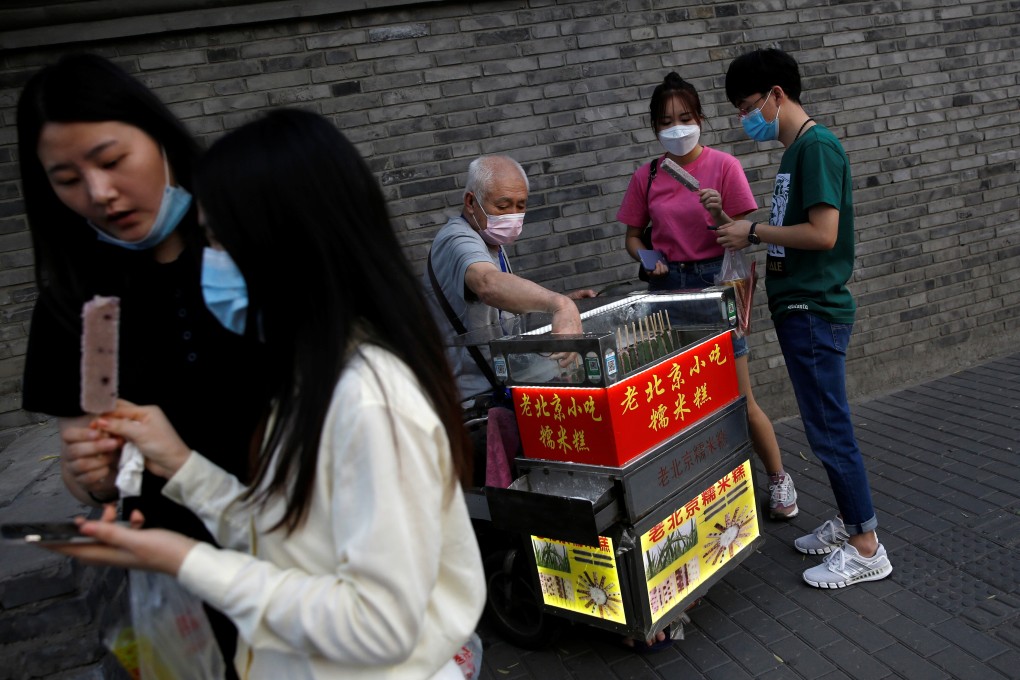Beijing city authorities reject calls to let roadside stalls return, saying they are ‘unsuitable’ for city
- Premier Li Keqiang had touted the ‘vendor economy’ as a way of helping the post-coronavirus recovery, but municipal authorities say this does not fit their plans
- Editorial in local party mouthpiece says allowing ‘unhygienic and uncivilised’ features of urban life would undermine efforts to improve the capital

The Beijing authorities have snubbed a call by Premier Li Keqiang to bring back roadside stalls saying they are “not suitable” for the capital.
But an editorial published in Beijing Daily, the mouthpiece of the municipal authorities, said: “Beijing should not and cannot develop economies that do not fit in the strategic positioning of the capital city.
“Roaming vendors and roadside stalls will put visible pressure on urban management, the environment, hygiene and traffic.”
It said Beijing has its “own moves and measures” to protect employment and minimise the impact of the Covid-19 outbreak.
“Should the once eliminated serious urban plagues – including dirty streets, fake goods, noise, traffic congestion, unhygienic and uncivil behaviour come back – all our governance efforts to date would be wasted, and undermine the image of the capital and well as the country,” the editorial added.